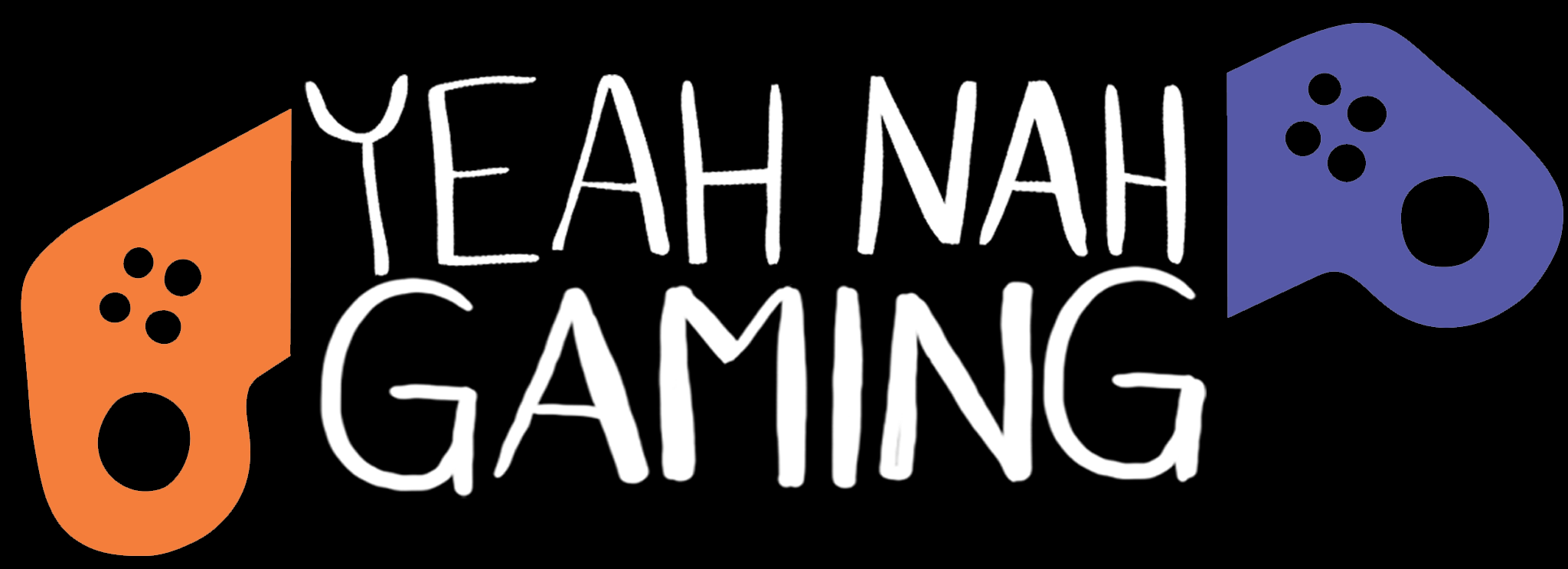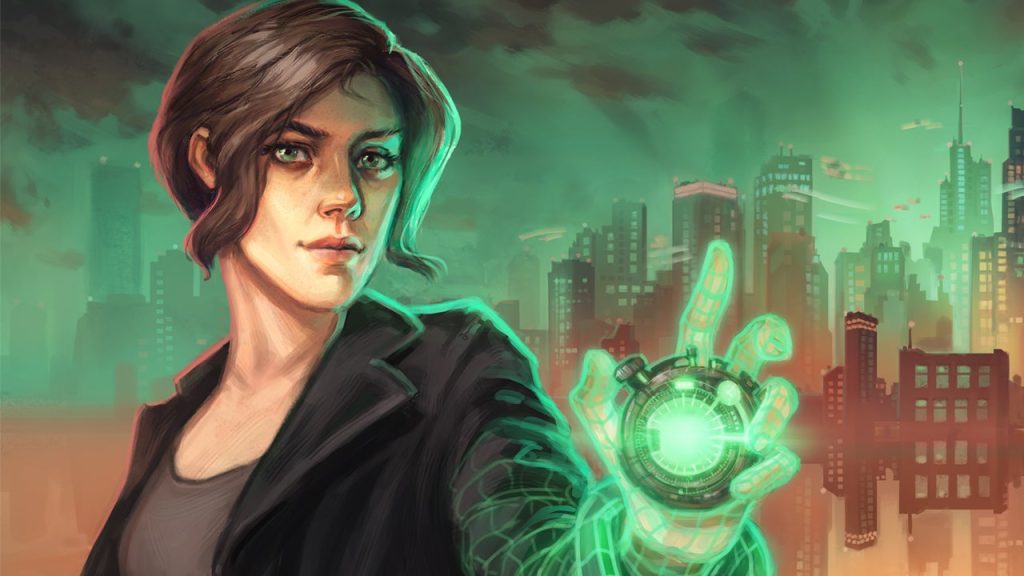Stop me if you’ve heard this one before: a time traveller goes back in time, accidentally changes history, and has to find some way to put everything back before getting paradoxed out of existence. You have heard that one? OK, fine. How about this: a time traveller goes back in time, with the specific goal of changing history, with the express permission of the government-sanctioned regulatory body for time travel, because the changes they want to make are deemed inconsequential enough in the grand scheme of things. Welcome to Old Skies, a fresh perspective on time travel that pushes the concept of the dreaded paradox to its most provocative, existential, beautiful, and most of all, human.
In the year 2064, time travel hasn’t just been discovered; it’s been commercialised. Anyone wealthy enough to afford the services of an agency called ChronoZen can take the most literal nostalgia trip imaginable, and even make changes within certain limitations. ChronoZen keeps an extensive database of all recorded history, with every person, entity, and event given an algorithmically-determined “timeline impact rating”. Anything ranked high is off limits, because of the potential timeline impact—so no going back to stop 9/11. But low rankings are fair game; if someone or some thing’s existence is deemed historically inconsequential, then altering the course of their life is deemed A-OK.
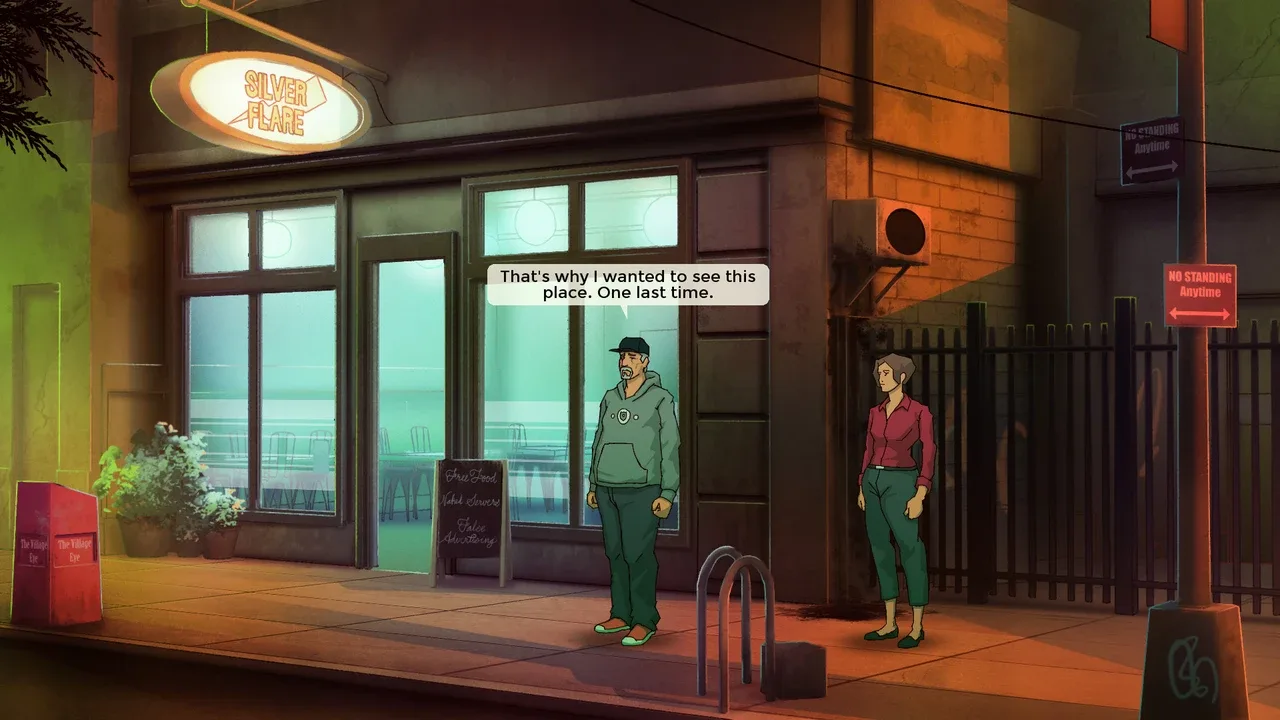
The consequence of this? A world where history is in constant flux, these “insignificant” changes from temporal tourists rippling across the timeline. Most people would never know, their memories changing along with every ripple. But time travelers need guides and handlers, and in order to do their jobs, those guides need to be chronolocked: protected from the effects of timeline changes, with complete memories of things that have been paradoxed out of existence. “After all, isn’t that the benefit of this job? To see all the paths not taken?”
You play as Fia Quinn, one such agent, as she takes clients back in time for everything from nostalgic trips down memory lane to solving old mysteries. It’s here that Wadjet Eye’s adventure game chops really shine, with classic point-n-click puzzling given a time travel spin. From using ChronoZen’s database to get information about things that haven’t happened yet in your “current when” to jumping back and forth between timelines, Old Skies weaves spacetime shenanigans into puzzle design in increasingly brilliant ways. Chief among these are the frequent situations where Fia gets killed, then unkilled through a little time rewind, and comes back armed with the memory of what happened (and a nasty headache). Groundhog Day as a puzzle concept gives way to some of the most inventive, clever puzzles I’ve seen in a long time. (It’s also a fun, in-universe throwback to the trial and error and comical deaths typical of classic adventure games.)
But all this time travel can take its toll. “Timeline malaise” is a common side effect for ChronoZen agents: the result of witnessing so many different shifting timelines, to the point that it can be hard to keep track of what’s real and hard to form any sort of meaningful connections. There’s a moment early on where Fia is having a drink with someone, only for them to suddenly disappear due to a ripple in the timeline. Anyone else would have no idea this happened, no memory of something that, as far as the current timeline is concerned, never happened. But for a chronolocked time travel agent, life is an endless stream of these incidents, making it impossible to so much as enjoy a good book—chances are it’ll get rippled away halfway through—let alone form any sort of meaningful connections with anyone, any thing, any place.
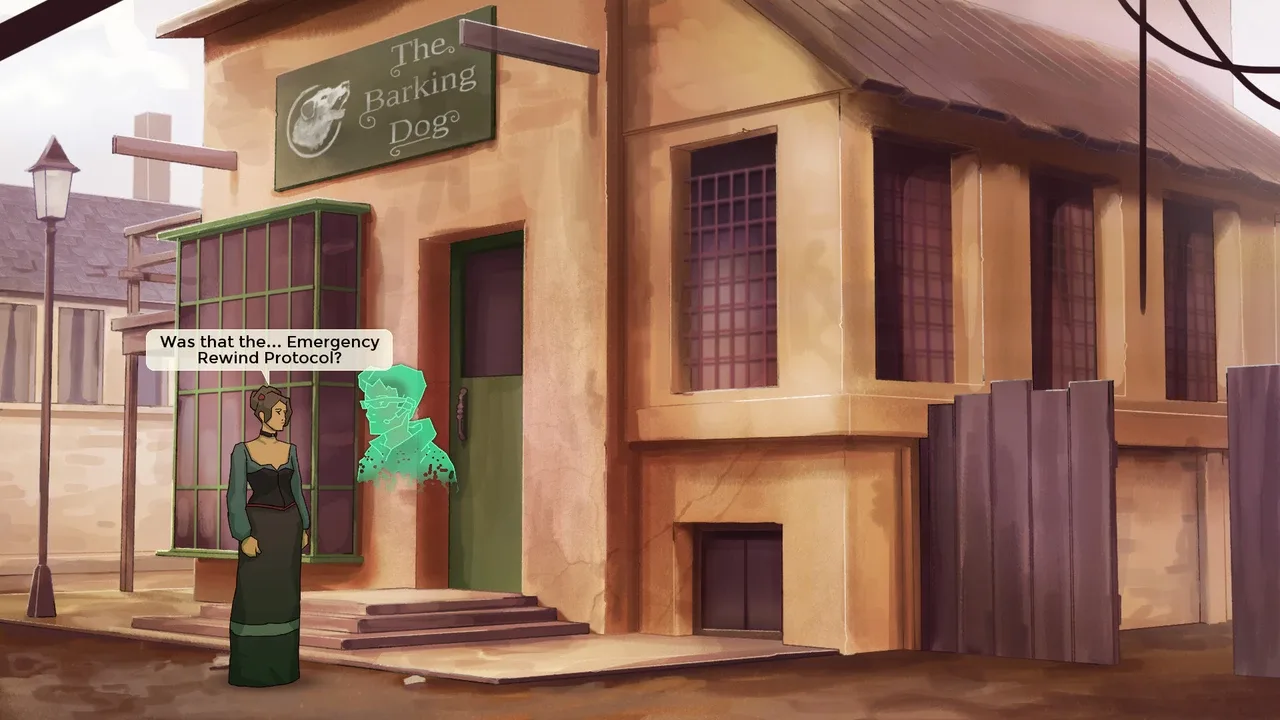
Connections—that’s the idea that Old Skies always comes back to. Connections to the past, be it for personal nostalgia, academic curiosity, or both. Connections to a place, as seen in how grounded the game is in its New York setting; even as Fia’s time travels take you through 200-odd years of history, there’s a persistent sense of place, something to anchor both the characters and the player. Connections to other people: family, loved ones, acquaintances, rivals, enemies, people we’ve never met who’ve nonetheless had an impact on our lives. Connection to oneself—oddly enough, sometimes the hardest bond to maintain, and not just for those suffering timeline malaise.
And, perhaps the most important connection where Old Skies is concerned: connection to “the paths not taken”; connection to the regrets of an unmade past, and to hopes for a future that can’t just be rippled away. The notion of changing the past for the better is a common theme in time travel media, Old Skies takes it to some haunting, bittersweet ends. It’s not just about the unexpected consequences of meddling with the past, or the ethical dilemmas inherent in that—though it certainly delves into both—but about the significance of that one’s past and what it means for the future. Seeing “all the paths not taken” might sound fun, until you realise you never really get to see the paths that are taken—at least, not in any real, persistent sense. And how do you form any sort of connection when you live such a life?
I don’t want to spoil anything, but suffice to say that the way Old Skies builds this towards a crescendo in its final act is masterful. Every thematic thread, pulled together into an ending where heartbreak and hope don’t just coexist, but are absolutely intertwined, dependent on each other—where, for all intents and purposes, they’re one and the same. It’s a beautiful, powerful moment, delivered flawlessly.
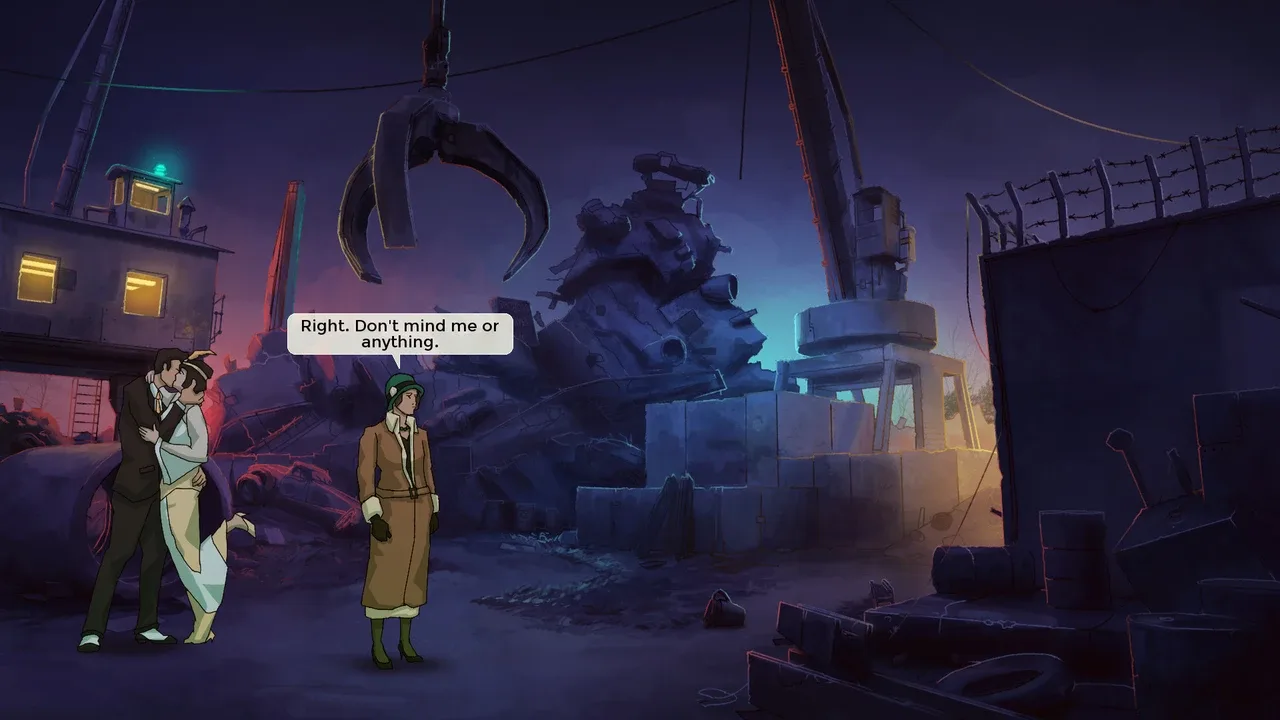
Stellar performances across the board bring the game’s whole world to life and really drive the point home. Sally Beaumont is a particular standout as Fia, effortlessly balancing deadpan humour and sincerity, never missing a beat as the plot pulls her through a whole lot of emotional highs and lows. The rest of the cast bring the same sense of humanity and authenticity into even the most minor roles, and stunning art direction and set design breathe the same life into the world itself.
It’s been almost a week since I watched the credits roll on Old Skies, and it’s still sitting with me—the ending in particular. This review is late because the game left me so much to ponder, left me with so many thoughts to try and make sense of before I could put proverbial pen to paper. Clever puzzles and a captivating, emotive story are a given when Wadjet Eye is involved, but with its thoughtful, existential perspective on time travel, Old Skies is their most impactful adventure yet. Here’s hoping it gets a high timeline impact rating, because I don’t want to live in a world were this game never got made.
Reviewed on PC with a review code provided by the publisher.
Wadjet Eye's latest point-and-clicker turns time travel shenanigans into brilliant puzzles and a powerful, heartfelt story about hope and connection.
